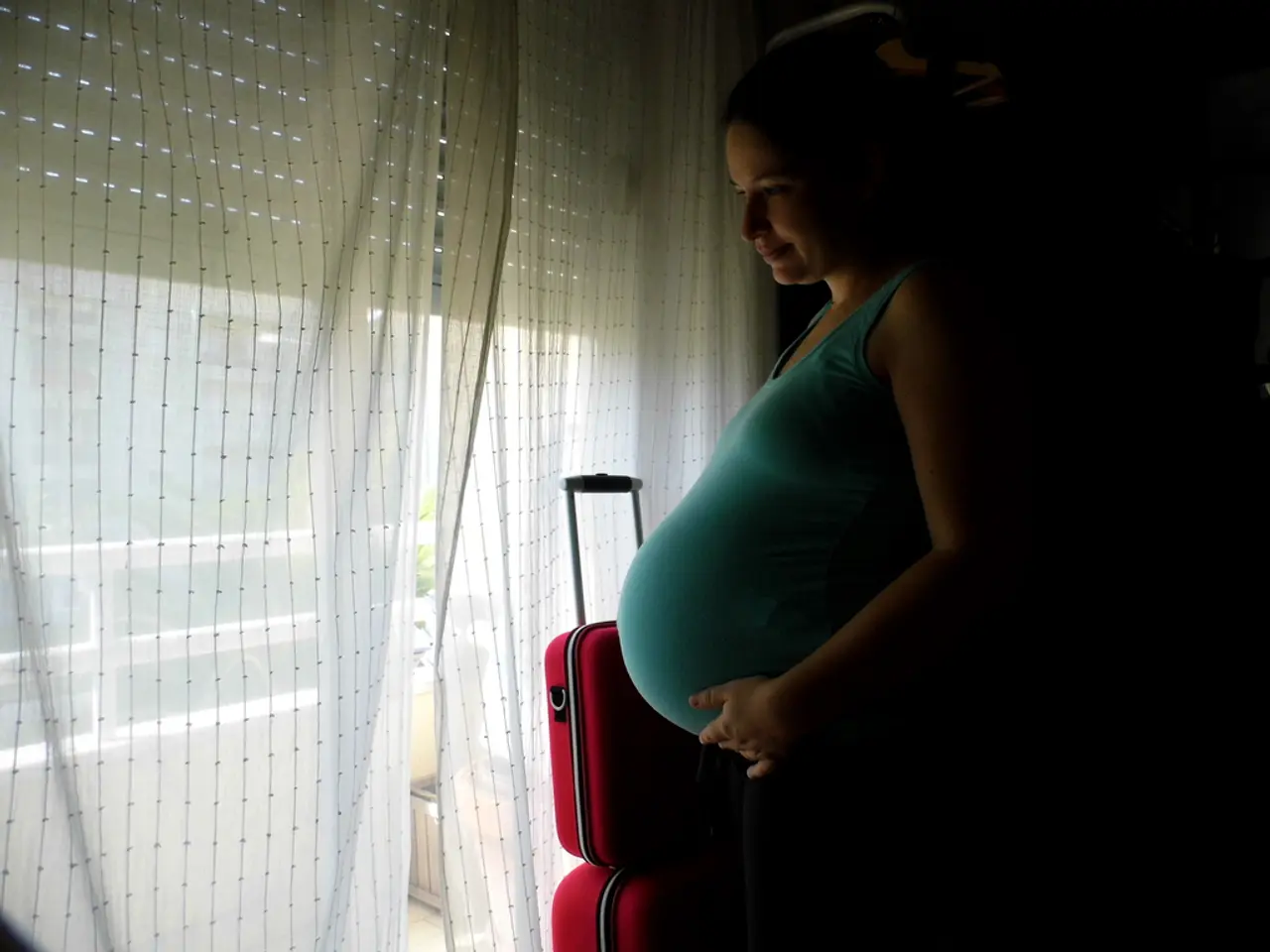Pregnancy and ovarian cancer: Essential information to understand
Ovarian cancer in pregnancy presents a unique and complex clinical challenge, requiring careful consideration of both maternal and fetal health. The treatment approach must balance the need for effective cancer control with minimizing risks to the fetus and potential long-term effects on future pregnancies.
Impact on the birthing parent and fetus
Ovarian cancers, particularly aggressive types like Small Cell Carcinoma of the Ovary, Hypercalcemic Type (SCCOHT), pose significant challenges during pregnancy due to their rapid progression and limited established treatment protocols for pregnant patients. Management involves a multidisciplinary approach, including gynecologic oncology, maternal-fetal medicine, and other specialties, to optimize maternal treatment while minimizing fetal risks.
Cancer treatments during pregnancy can cause physical and psychological burdens. Chemotherapy may be delayed or complicated by pregnancy, and the birthing parent can experience emotional distress related to treatment side effects and altered pregnancy experience. Despite aggressive treatment efforts, there can be poor maternal outcomes and risks to the fetus, especially when treatment timing is delayed or complicated by pregnancy.
Treatment options
Surgical options may include cytoreductive surgery to remove tumors, but timing and extent of surgery must be individualized to preserve pregnancy when possible. Chemotherapy is a mainstay of ovarian cancer treatment, typically given in cycles, but its use during pregnancy requires careful consideration of drug types and gestational age to reduce fetal harm.
Neoadjuvant chemotherapy (chemotherapy prior to surgery) has been shown to improve survival and reduce surgical complications in advanced ovarian cancer, although data in pregnancy are very limited. Removal of both ovaries or fallopian tubes leads to infertility; preserving one ovary may still allow future pregnancies if cancer is unilateral and early stage. In advanced disease or uterine involvement, hysterectomy (removal of the uterus) precludes future pregnancy.
Potential long-term effects on future pregnancies
Cancer treatments such as surgery removing reproductive organs and chemotherapy can impair fertility and lead to early menopause, impacting the ability to conceive again. Fertility preservation techniques, such as oocyte or embryo freezing, prior to treatment are options but may delay cancer therapy and carry uncertain success rates.
Stem cell therapies are an experimental approach being explored to restore ovarian function and fertility after damage, showing promise but with limited long-term safety and efficacy data currently available. The emotional and physical impacts of cancer treatment during pregnancy can influence decisions about future pregnancies due to concerns about recurrence, health risks, or fertility loss.
In summary, the treatment and progression of ovarian cancer during pregnancy can threaten both maternal and fetal health, requiring customized treatment balancing oncologic urgency and fetal safety. Treatment often involves surgery and chemotherapy, which can adversely affect fertility and future pregnancies depending on extent. Fertility preservation options may be considered but come with their own challenges. Emerging regenerative therapies hold future promise but are not yet standard. Given the rarity and complexity of ovarian cancer in pregnancy, multidisciplinary individualized care and further research are essential.
The healthcare team managing and treating ovarian cancer during pregnancy may include an obstetrician, oncologist, anesthesiologist, neonatologist, psychologist, and others. Radiation therapy may affect the cells and blood supply of the uterus, increasing the chances of early birth, miscarriage, and low birth weight in future pregnancies. Chemotherapy during the first trimester may increase the risk of fetal malformation by 10-20%.
For support, the National Cancer Institute operates a cancer helpline (800-227-2345), and several organizations provide ovarian cancer support, including the Ovarian Cancer Research Alliance, The National Ovarian Cancer Coalition, The National LGBT Cancer Project, Black Women's Health Imperative, Latinas Contra Cancer, and SHARE.
- Pregnancy can pose significant challenges when dealing with ovarian cancers that have rapid progression, such as Small Cell Carcinoma of the Ovary, Hypercalcemic Type (SCCOHT), due to limited established treatment protocols.
- The treatment approach for ovarian cancer during pregnancy involves a multidisciplinary team, including specialists in gynecologic oncology, maternal-fetal medicine, and other relevant fields, to optimize maternal treatment while minimizing fetal risks.
- Neoadjuvant chemotherapy (chemotherapy before surgery) has been shown to improve survival and reduce surgical complications in advanced ovarian cancer, but data in pregnancy are limited.
- Chemotherapy during pregnancy requires careful consideration of drug types and gestational age to reduce fetal harm, and it can impair fertility and lead to early menopause in the long term.
- Stem cell therapies are being explored as an experimental approach to restore ovarian function and fertility after damage, but there is limited long-term safety and efficacy data available.




